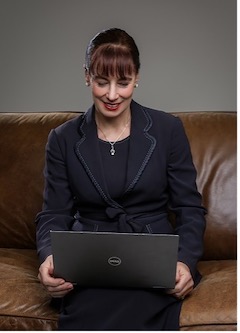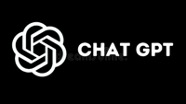End of financial year, do I have an offer for you?
Of course!
To thank you for being a subscriber I have reserved a 15% discount for you on all board reviews, director training and development, and in-house deliveries of my "Writing Better Board Papers" training. Simply book your preferred service and pay a deposit before 30 July and your discount will be applied.
If you have unused budget allocation from this year, or would like to plan ahead for next year, this offer will help you to access the service you need at a price you can't beat.
To book just call me on +61 411 262 470.
Meet me in Melbourne
I'm excited to announce Governance Unplugged - an exclusive opportunity for in-depth Q&A sessions and networking with peers. Book your spot at this exclusive, free, live experience - Governance Unplugged.
Think of it as a webinar brought to life. Come meet your peers and ask Steve Bowman and me your most challenging governance questions. Questions can be submitted anonymously if you prefer.
The room will be packed with the brightest, most ambitious, experienced, emerging and aspiring company directors, so come along and join the fun.
You can book at https://events.humanitix.com/governance-unplugged-melbourne
Hurry. Seats are limited and it's first come first served.

Masterclass on Writing Better Board Papers
The next scheduled deliveries are:
8 August, Melbourne. Book at:
https://www.eventbrite.com.au/e/writing-better-board-papers-melbourne-8-august-2024-tickets-781201654177
12 September, Sydney. Book at:
https://www.eventbrite.com.au/e/writing-better-board-papers-sydney-12-september-2024-tickets-871383199607
If you would prefer an in-house workshop for your executive team, please reply to this email and I will gladly schedule one for you. Act fast and you could get the benefit of the 10% discount for EOFY.
Book review - Technofeudalism by Yanis Varoufakis

This book is almost unnerving in its clarity. I wish my MBA text books had been this clear; I might have done far better in Economics if they had.
The premise of the book, that capitalism started to fail and the GFC and Covid have hastened its demise, is interesting. The spectre of what we may be creating in its place is enough to keep me awake at night (and not with the excitement of Christmas eve).
How did the owners of cloud capital platforms manage to have people work for free or for a pittance and to intersperse their platforms between us and the world we inhabit until there appears no other way to reach through? How can we thwart them?
What, as directors of organisations designed to survive in the capitalist system, can we do to discharge our duty of care and diligence as the world is shaped by technologies too rapidly evolving for a mere human brain to comprehend, let alone counter?
This book hints at answers which would be politically difficult and technically challenging. I'm not sure I agree with them. But at least I have a better understanding of the questions and the underlying trends that give rise to them. For that, I am grateful to this book. I read it, ironically, online!
You can get a copy at amazon.com.au ... or your technofeudal platform of choice!
Board reviews - Every board - just like every other team - needs to measure its performance if it hopes to improve.
When your board next needs to conduct a performance evaluation or a governance review, please remember that I would be delighted to help.
You can contact me at julie@mclellan.com.au.
Inspirational quote for July

Maybe not 'inspirational' but definitely something to ponder before you next speak in a board meeting.
A note on names - A note on names - A few readers have asked me where I find the names for the protagonists in each case study; I 'borrow' them from people I meet or things that I read. Odette is a feminine name of French and German origin, meaning "wealthy". This name is derived from its masculine counterpart Otto which itself comes from the Old High German words otho and odo, a version of the French word auda meaning "rich." Our protagonist is rich in insights and needs to use those to protect the wealth and intellectual property of her organisation.
Video resources - I post short video insights on LinkedIn. They disappear after a few days. You might like to visit (and please subscribe to) my YouTube channel to see the videos whenever you want to watch them. Let me know if there are any topics you would like to see addressed.
This newsletter - If you have any ideas for improving the newsletter please let me know. If you are reading a forwarded copy please visit my website and sign up for your own subscription.
Suggestions for dilemmas - Thank you to all the readers who have suggested dilemmas. They are greatly appreciated. I will answer them all eventually. I could not write this newsletter without your help and without the generous help of all the experts who respond each month to the case studies.
Be a contributor - if you would like to attempt a response to the dilemmas for publication you will be most welcome. Simply reply to this email and let me know. I am always on the lookout for new talent from around the world so please reach out if that sounds like something you could do. I am also always grateful for the generous sharing of the current and past contributors. I couldn't create such an engaging newsletter without their help.
Spread the word - if you have read this far, I assume you enjoy the newsletter - please help me to reach more directors by sharing the newsletter with your board colleagues and suggesting that they also become subscribers or by posting a recommendation on my LinkedIn page to let others know that you find the newsletter valuable.
Let's connect - I use LinkedIn to share information about boards and directorship with my friends and acquaintances. If you use LinkedIn and we are not yet connected I will welcome a connection from you. You can find me at
linkedin.com/in/juliegarlandmclellan.
Farewell until the next issue due 1 August 2024. I look forward to greeting you again then.
Enjoy governing your companies, it is a privilege!
Best regards,
Julie
Main Photo by Meta AI
Quote Illustration by Julie Garland McLellan
Disclaimer - The opinions expressed above are general in nature and are designed to help you to develop your judgement as a director. They are not a definitive legal ruling and do not constitute legal advice. Names and some circumstances in the case study have been changed to ensure anonymity. Contributors to this newsletter comment in the context of their own jurisdiction; readers should check their local laws and regulations as they may be very different.
Privacy - I am privileged to have your contact details and keep them as safely as possible. I will alert you if they are ever accessed by any unauthorised person (the technical staff at ayuda help with publishing and issuing the Director's Dilemma and have access so they can send the newsletters to you). I do not sell your details to anyone; they are kept only for the intended purpose - sending you this newsletter and helping to build the judgement of company directors by providing a safe way to consider potential responses to real life events.









